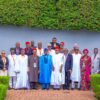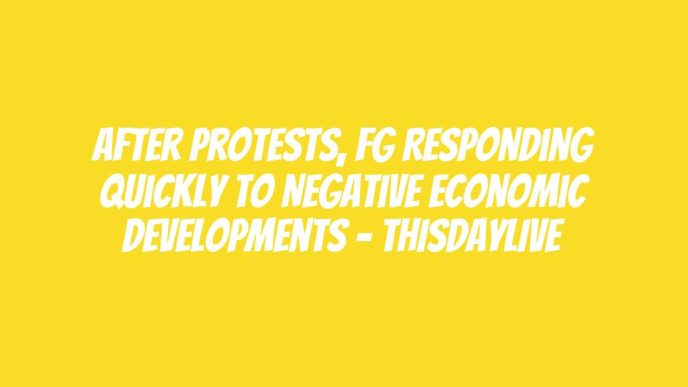Cacophony fills the Nigerian sports space. From the ashes of the country’s participation at the Paris 2024 Olympic Games springs the shrill of anger and condemnation.
In the past one week, Nigerians have collectively vented their anger and frustration at those they perceive to have caused thecountry’s failure to return from Paris with a single medal. They are baying for the blood of sports officials, especially that of the Sports Minister, because the buck of the calamitous ‘failure’ of the athletes stops at his desk. They ask: How can a country of over 200 million people, and that expended N12 Billion Naira fail to win a single medal?
Pierre de Coubertin, founder of the modern Olympic Movement, will be quivering in his grave: since when has winning medals become a matter of size of a country, or population, or amount of money spent on the eve of the event, or wishful thinking, or unearned expectations?
Fundamentally, every country goes to the Olympics with all the athletes that achieve the qualifying standards through pre-Olympic competitions, and not on their likelihood to win medals. That’s why Nigeria went with 82 qualified athletes. Of this number, how many, realistically were expected to win any medal?
In Paris there were 10,500 athletes from 205 countries. How many can win the 329 medals at stake? Are the other over 10,000 athletes’ failures?
To win any medal is not a stroll in the part. It is earned on the fields of competition. To even get to the Olympics is a painstaking ‘journey’. The 100 metres finals will last only 10 seconds. What is required to get to that point is training hard for six to nine hours every day for several years; surviving health, fitness and unforeseen challenges; competing against hundreds of the best athletes around the world for those many years; securing funds to train, hire personnel and compete in high level events; securing the services of experts to successfully navigate the athlete through the treacherous terrain leading to ultimate success; to be self-motivated and to be favoured by the elements. Which of these did Nigeria do to prepare its sprinters and earn the right of expectation to win a medal?
At the end of all the above, those that successfully navigate the minefields and win medals, hardly ever do so coming from the blues, or by accident. They pass through the crucible of fire.
Sentiments aside, in all facets of life, including sports, Nigeria should be one of the leading lights of Africa, providing leadership that will steer away from under-development into the bright light of success. The evidence of this possibility has always been there, a musical tune that has been played for decades in the corridors of international sports. It is only unfortunate that successive Nigerian governments have been deaf to the lyrics of the song.
Meanwhile, we must not confuse the little incidents that happen during every Olympic Games to all teams as any measure of their success or failure. Administrative lapses will always occur. Without accepting or embracing them as normal, what we should never do is use them as basis to throw away the baby with the bath water, or to smear the performance of the athletes with that tar. These issues must be separated, each bearing its own responsibility. We have history to take lessons from.
In attending the 1980 Olympics, Nigeria went with the best set of sports administrators in the history of the country – a Sports Ministry and an NSC complete with Isaac Akioye and that whole generation of stakeholders and seasoned administrators.
The world was embroiled in crisis that rendered the Moscow Olympics one of the worst in history. Nigeria did not even qualify in many sports but were invited to take part at the last minute.
The country did not win a single medal despite having a crack number of great athletes in several sports that were to blossom in latter years.
Yet, what dominated the media on return to the country was a ‘sex scandal’ that never happened, an imaginary relationship between an athlete and an official of the National Sports Commission created by a journalist gathering information from the Olympic Village through the telephone from his hotel room in Moscow.
That report fuelled the anger of Nigerians and was attributed for the country’s failure to win any medal. The country went into a frenzy, calling for heads to roll.
Heads eventually did roll. A judicial panel of enquiry was set up headed by a respected legal luminary. Many innocent administrators were fired and the whole sports architecture of Nigeria, well-founded and running well, were dismantled and destroyed.
Till date, Nigeria has not found its feet again in sports administration for proper sports development.
Since then, Nigeria has been groping, unable to pick the pieces of that moment of madness, seeking answers to the perennial failure, since then, of the sports sector.
Forget 1996, the glorious year of Nigeria at the Olympics. The victory of that campaign was not deliberate or earned by dint of any deliberate policies, or program. People forget easily that even the ‘Dream Team’ that mesmerised the world and created Olympic history went to the Games in administrative shambles. That team was the assembly of some of the most gifted footballers in Nigeria’s history. That’s why they eventually won.
Nigeria’s first ever individual Gold medallist came from the blue, in a totally independent pursuit by a lady wronged and condemned by the system and the country. Chioma Ajunwa was not a product of Nigeria’s successful program.
Nigeria’s sprinters of that generation, both male and female, had for years been demonstrating individual capability on the international circuit prior to the Olympics – Onyali, Ogunkoya, Olopade, Alozie, Egbunike, Ezinwa Brothers, Sunday Uti, and several others, talented athletes that came through the web of Nigeria’s limited development programmes, hinged mostly to training in America, through self-help or federal government scholarships.
Nothing was properly structured before and after 1980 to produce a steady stream of the best sprinters embedded in our genes. That’s why 2012 in London was another perceived ‘failure’. Nothing had changed.
That’s why, as a bona fide member of Nigeria’s pool of Olympians, over 700 strong throughout the country’s history, I appreciate how only a handful have Olympic medals around their necks to show for their place in history. Yet, we all lay claim to being ‘successful’ Olympians.
We must be humble and appreciate all Olympic athletes. Even on the Nigerian Olympians platform, I read strident condemnation of officials and athletes considered ‘failures’ as a result of administrative lapses. These are distractions from the main issue, clouds that hide the real culprit of Nigeria’s failure – a country that does not take sports as seriously as it should. Throwing money at the last minute without a solid development program, not making sports a priority area for government’s attention, and just hoping that medals will be won, are wishful and unproductive.
Lets step back from what happened at Paris 2024, look again at where the country stands in the area of producing a rich and consistent line of world class athletes, encourage the great performances (even without medals) that some of the athletes put up in some of the sports (recognised by the rest of the world but not Nigeria), do the things we should have done that we know but lack the courage to confront, stop the lamentation and move on to the next steps along the path to deserved success.
The Nigerian government must wake up and take sports very seriously.
The country must demonstrate this by declaring a State of Emergency in the sector.
The President should sign the bill that brings back the National Sports Commission immediately, separating the Ministry of Sports Development from the Commission with clearly defined roles.
A board of the Commission should be constituted comprising tested, experienced and qualified stakeholders, technocrats and private sector players.
Amongst other things, the National Sports Lottery initiative should be re-jigged as a major means of raising funds for Nigeria’s sports development.
The constitution of Sports Federations should be amended under the supervision of the Sports Development Ministry to reflect Nigeria’s best sports interest and needs, with clear and achievable development agenda.
Nigerians are angry. They have a right and justification to be, but they should not vent their angst against the wrong persons, or for the wrong reasons.












